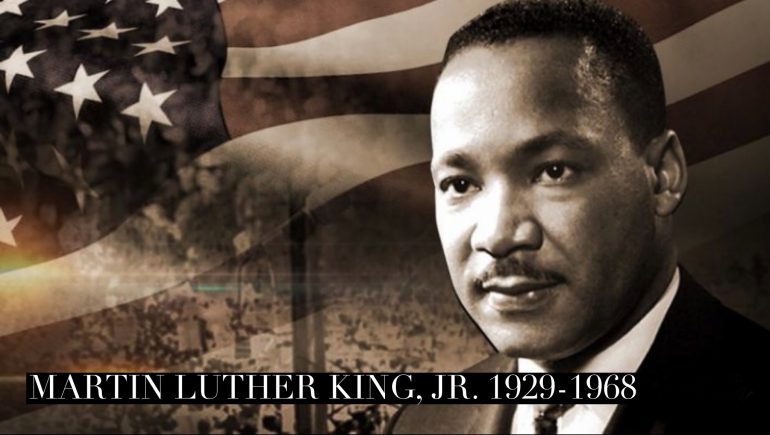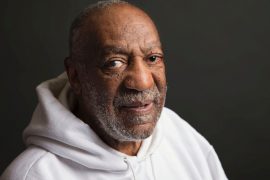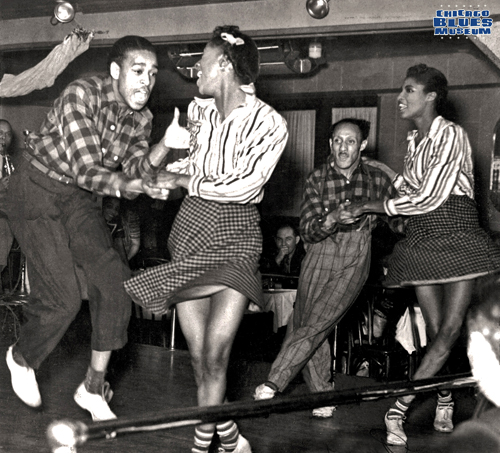We celebrate Dr. Martin Luther King’s life today, and more and more, we realize his greatness in today’s climate. King’s life and his work were a blessing to America. Had he lived, he would today be 92 years old. I wonder what King would look like today and what he would say to Trump and his followers. We can all guess. King’s leadership, a short but profound 13 years, changed America and opened the world. He utilized solid leadership principles, with his Baptist minister’s voice and turned America around as he challenged the country to live up to its constitutional creed of equality and right America’s sin, RACISM.
The MLK/FBI Documentary
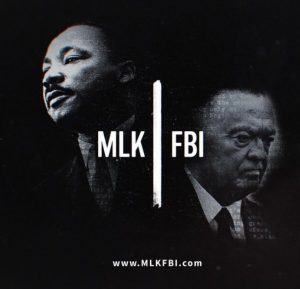 A new documentary on King releases on King’s actual birthday in theaters and on APPLE-TV. “MLK/FBI’ directed by award winning producer, director and editor, Sam Pollard. It releases the FBI files, unopened for 50 years, on King’s extra-marital affairs, with detail. J. Edgar Hoover, the FBI Director, was obsessed with King’s sex life and labeled him as “the most dangerous Negro in America.” The straight forward documentary is based on David Garrow’s book, The FBI and Martin Luther King, Jr: From ‘Solo’ to Memphis.Garrow won a Pulitzer prize in 1987 for his biography on King, Bearing the Cross. Hoover wanted to destroy King as he tried to link him to communism. He called King’s brand of sex “radical.” How did Hoover define “radical sex?” Perhaps he means hypersexual powers that, white American racist males have assigned to Black males. Hoover, himself was a crossdresser, a homosexual, a racist southerner, with stereotypical ideas about Black men, that he carried full measure to King. However, this is not revealed in the film, but it an interesting historical note to comment on Hoover’s sex life as he invaded King’s privacy with wiretapping in hotel rooms.
A new documentary on King releases on King’s actual birthday in theaters and on APPLE-TV. “MLK/FBI’ directed by award winning producer, director and editor, Sam Pollard. It releases the FBI files, unopened for 50 years, on King’s extra-marital affairs, with detail. J. Edgar Hoover, the FBI Director, was obsessed with King’s sex life and labeled him as “the most dangerous Negro in America.” The straight forward documentary is based on David Garrow’s book, The FBI and Martin Luther King, Jr: From ‘Solo’ to Memphis.Garrow won a Pulitzer prize in 1987 for his biography on King, Bearing the Cross. Hoover wanted to destroy King as he tried to link him to communism. He called King’s brand of sex “radical.” How did Hoover define “radical sex?” Perhaps he means hypersexual powers that, white American racist males have assigned to Black males. Hoover, himself was a crossdresser, a homosexual, a racist southerner, with stereotypical ideas about Black men, that he carried full measure to King. However, this is not revealed in the film, but it an interesting historical note to comment on Hoover’s sex life as he invaded King’s privacy with wiretapping in hotel rooms.
Amazingly as he harassed King with the tapes, from sending them to his wife, Coretta and intimidating King with the release of the tapes, and strongly recommending King commit suicide because he would expose the tapes, King did not flinch. He kept on marching. On “Face the Nation”, when King was questioned about Hoover’s investigations and what he thought about them. King replied they were curious but also asked, did he investigate the murders of the four little girls killed on September 15, 1963. Four African-American girls (Addie May Collins, Carol Denise McNair, Cynthia Wesley, Carole Rosamond Robertson) were murdered at the 16th StreetBaptist Church bombing in Birmingham, Alabamaas they attended Sunday school. He left them speechless.
He was in the right place at the right time as a young theologian, a new minister, in town when a lady decided to sit on a bus in the white section. He rose to the occasion to address segregation as Mrs. Rosa Parks took center stage on December 1, 1955. He had no idea, what a civil rights movement would look like. He guided the boycott as he took counseling himself from more senior members of the community, on leadership to end Jim Crow laws, that ruled southern states. In a very brief 13 years with focus, extreme concentration, he introduced a new tacit borrowed from Gandhi’s India on civil disobedience. He boycotted, marched, protested, and challenged until the laws changed. He brought forth change to America’s social order. He led the way. He brought the community together in a model of what he called the “beloved community.” He followed his religion, he became the moral conscience, the moral voice of America.
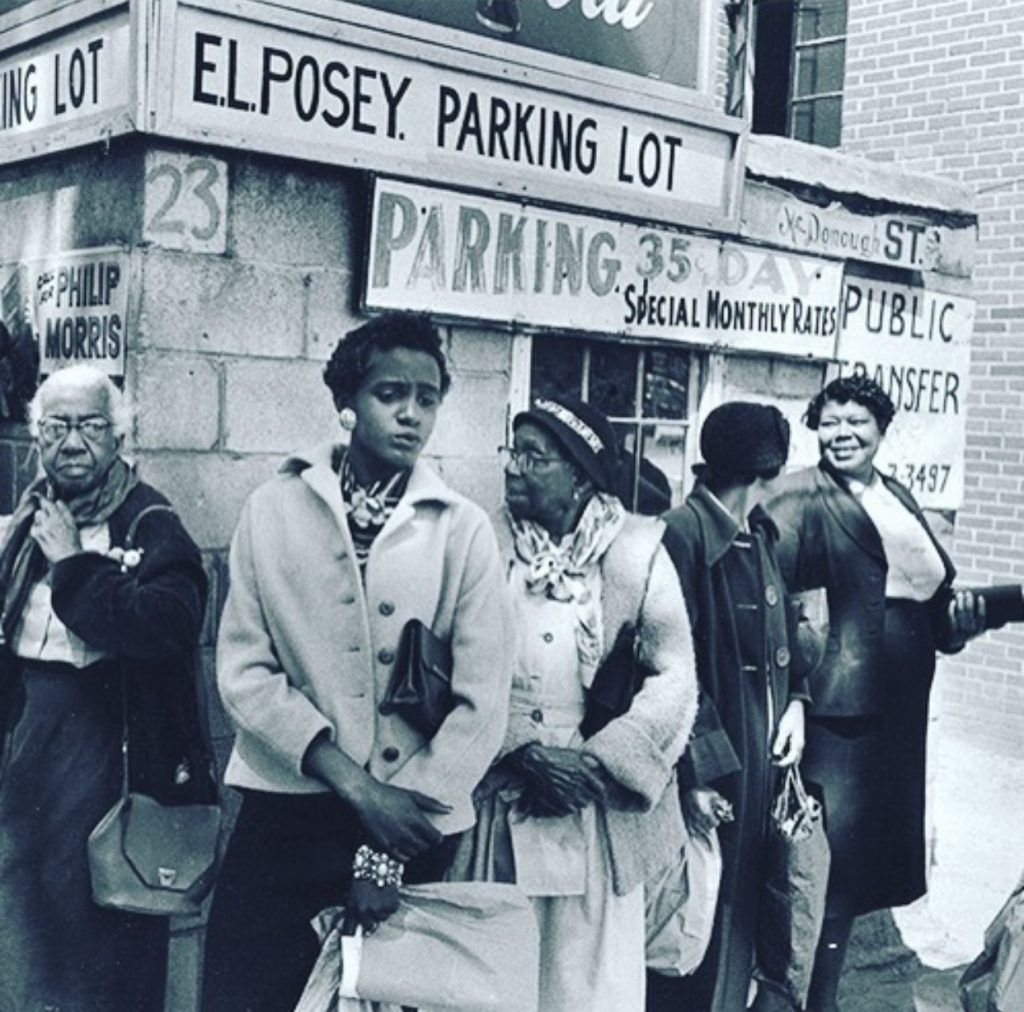
The bus boycott in Montgomery, Alabama ended because “Negroes” mostly Black domestic women, walked to work and carpooled for one year. Often overlooked as this story is told, is the boycott was effective to the point where the bus company faced bankruptcy when they reached out to King and his team to negotiate the end of the strike. Determination, not compromise was successful. A movement had begun. Jim Crow was dying.
The movement grew to historic heights with a super march, “The March on Washington,” where Dr. King along with the big six of the Civil Rights organizations, including John Lewis, made their mark with President Lyndon Johnson to change federal laws. As I read, CASTE by Isabel Wilkerson, there is a realization as to what King accomplished. He changed and challenged America’s racism with its very own constitutional written words on citizenship. His impact overwhelms. His marches were dramatic and even dangerous, like “Bloody Sunday” in Selma, where it took three attempts to cross the Edmund Pettus Bridge for voting rights. Others who followed, his staffers, like Andrew Young, Jesse Jackson, Hosea Williams, John Lewis, questioned America’s caste system, which is where we find ourselves today. King’s moral authority addressed constitutional racism.
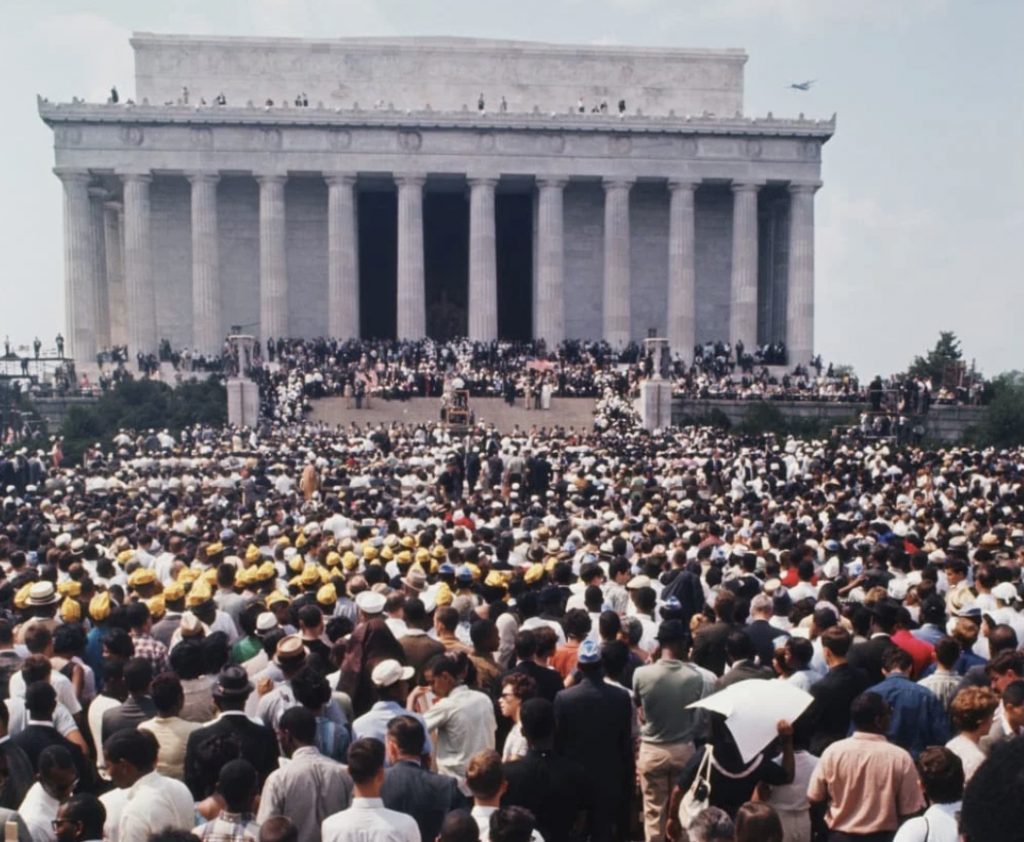
King was truly a leader. He raised his money for his efforts through faith-based organizations mostly Black churches throughout America. There were no grants, no foundation funding. There were no corporate sponsorships. This is an amazing factor for me. In conversations with Rev. Jesse Jackson about King he points out one of King’s trips to Chicago as King was rushing to the airport, Jackson asked that he make just one more stop to the home of the late Al Boutee who was then the President of Independence Bank. He along with Cirilo McSween the treasurer of SCLC and other Chicago business people presented King a check for $50,000. King had never received a check in that amount or from Black business people. He wept as he accepted. Yet, another payroll met.
From King to Trump…
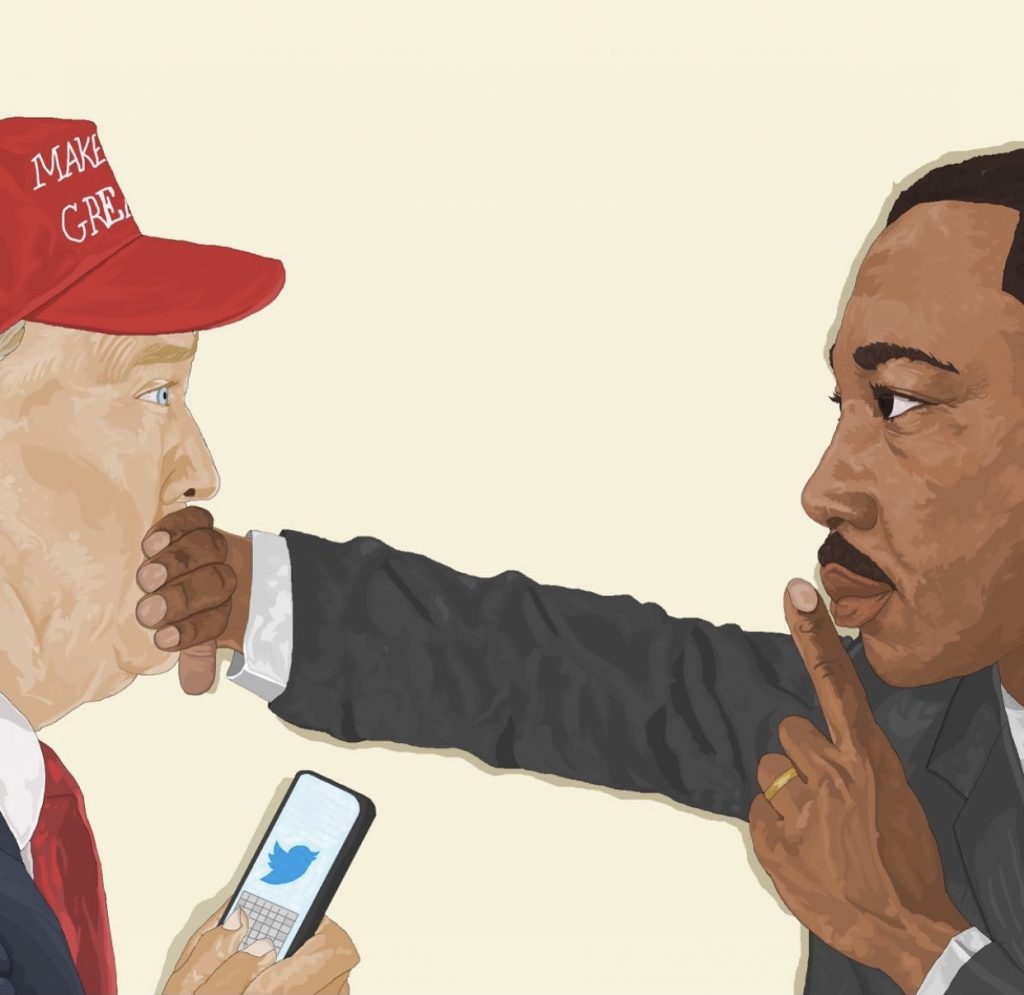
In this day of turmoil, as we watch the President of the United States crumble and dissolve into disgrace with a second historical impeachment and as we watch a mob of domestic terrors, attack the halls of The Capital, with death threats to lawmakers and destruction, you wonder King’s voice. What would the King method be in these times moving from “chaos to the community.” What would he do or say? In another conversation we see King live, so Jesse Jackson told me. How so, sir?
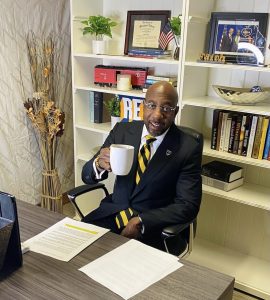 We see Reverend Raphael Warnock go to Washington as a Senator, the first Black United States Senator from Georgia. We see Warnock, the minister of King’s church Ebenezer perhaps become, just maybe, the moral voice, in King-like fashion and style on the Senate floor as this time. Could you imagine King on the Senate floor? We saw a dramatic power play from Georgia come forth, from another Morehouse man who deliberately followed King’s footsteps. We need a King voice in the Senate as we approach a new era of government. Perfect timing for progress. We see the organizing skills of the brilliant Madame Stacey Abrams, not grieve about losing the governorship but to go on to organize grass-root voters from all of Georgia state to vote in a historic election that was the most expensive in the history of a senatorial race. She follows King fellows, Jackson, and Lewis.
We see Reverend Raphael Warnock go to Washington as a Senator, the first Black United States Senator from Georgia. We see Warnock, the minister of King’s church Ebenezer perhaps become, just maybe, the moral voice, in King-like fashion and style on the Senate floor as this time. Could you imagine King on the Senate floor? We saw a dramatic power play from Georgia come forth, from another Morehouse man who deliberately followed King’s footsteps. We need a King voice in the Senate as we approach a new era of government. Perfect timing for progress. We see the organizing skills of the brilliant Madame Stacey Abrams, not grieve about losing the governorship but to go on to organize grass-root voters from all of Georgia state to vote in a historic election that was the most expensive in the history of a senatorial race. She follows King fellows, Jackson, and Lewis.
We see the work, the “good trouble” of the late John Lewis in splendor. We see the work of Rev. Jesse Jackson materialize as he has been consistent for half a century, with efforts to register voters throughout the land, to the tune of registering more voters than any other with 6 million recorded and still counting. We see the “boy preacher “of New York, come into his very own, 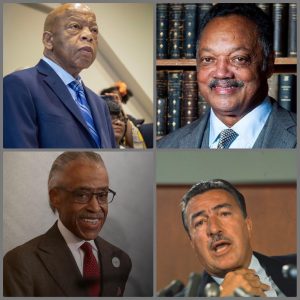 the Rev. Al Sharpton, talking eloquently on the talk shows addressing the ills of American society, without hesitation and forthright in his voice with reality and clarity of indignation. His heroes as a little boy were civil rights leaders, not sports figures. He studied their example in real-time and followed the path to become “Rev. Al.” Adam Clayton Powell put him on his knee and Rev. Jesse Jackson took him by the hand. It was his “becoming.”
the Rev. Al Sharpton, talking eloquently on the talk shows addressing the ills of American society, without hesitation and forthright in his voice with reality and clarity of indignation. His heroes as a little boy were civil rights leaders, not sports figures. He studied their example in real-time and followed the path to become “Rev. Al.” Adam Clayton Powell put him on his knee and Rev. Jesse Jackson took him by the hand. It was his “becoming.”
We see the world change, the “beloved community” gathering as “Black Lives Matter.” We see today, resistance and impeachment from the Trump /Hitler like a bully pulpit. The hatred, the ignorance, the racism, we see it screaming on its last leg. We see the President of the United States become the “enemy of the people,” we see the “enemy within” lose ground in total disgrace, because the community, the white community, those King challenged have lost patience. We see the likes of “white privilege”’ dissolve as Black and Brown people become included in the American process in all quarters, to include the highest in the government. We see the backlash of America’s protest turned violent; we see the end. We see the disintegration of the American nightmare turn into the American dream. We saw the dawning of a brand new day.
We see the life of King, still being fulfilled. We see his legacy of living. We see his works and his words live.
Happy Birthday Dr. King. Thank you for the change.

